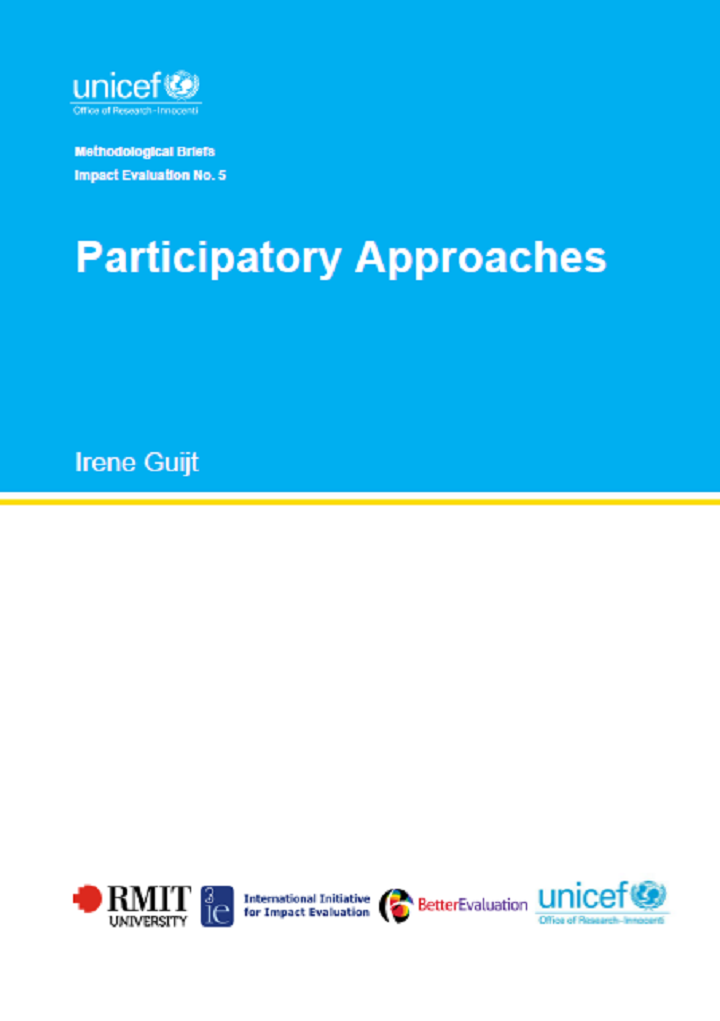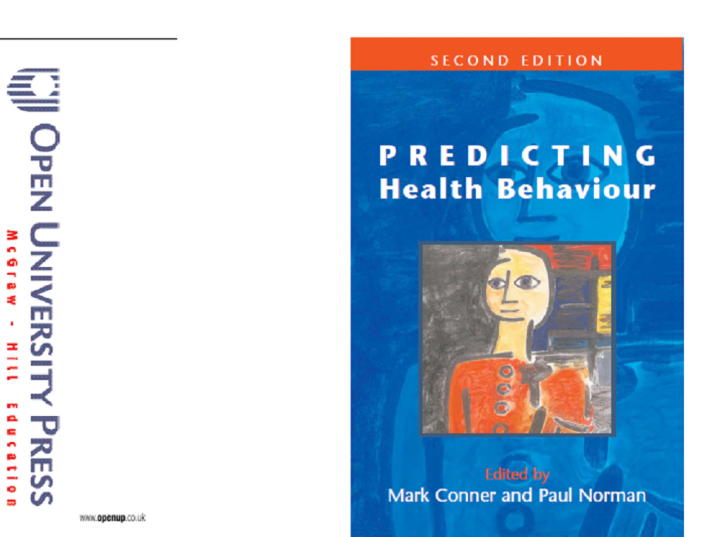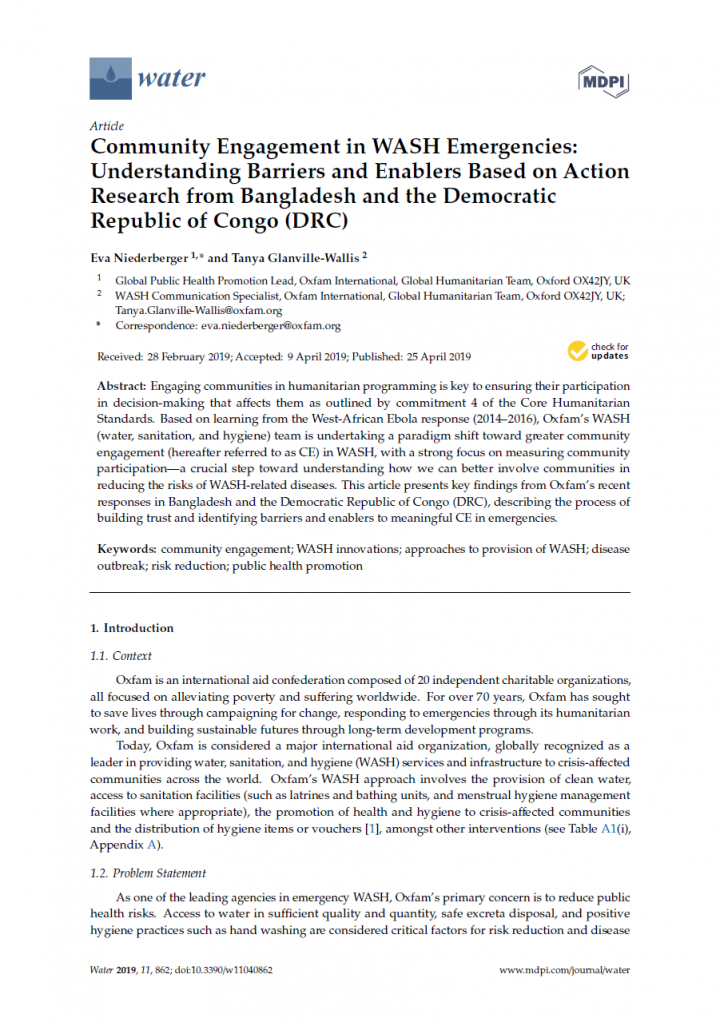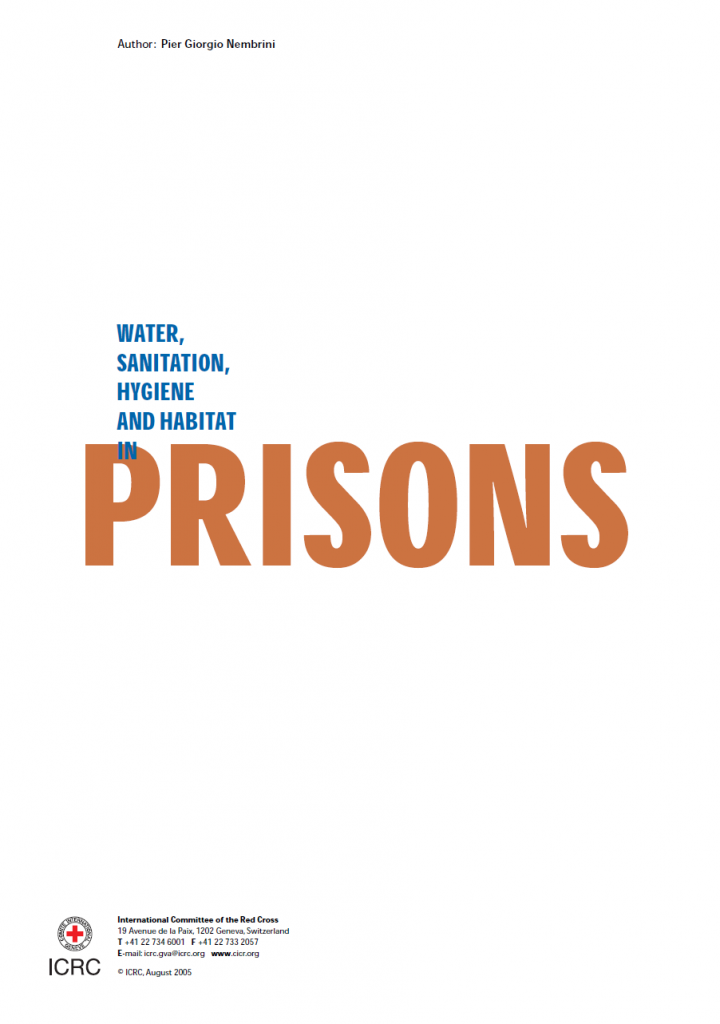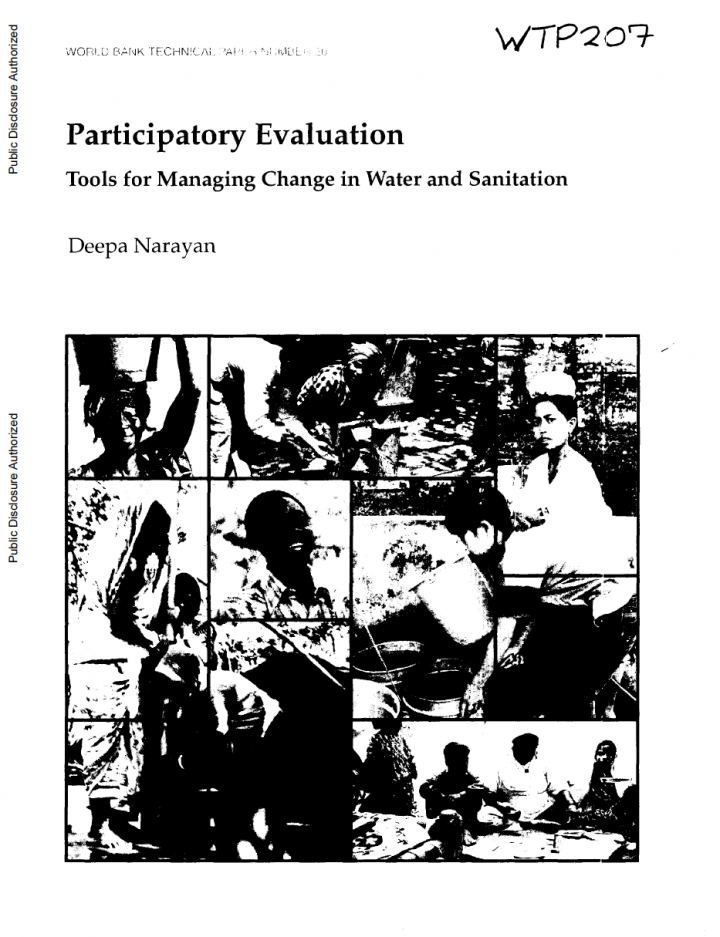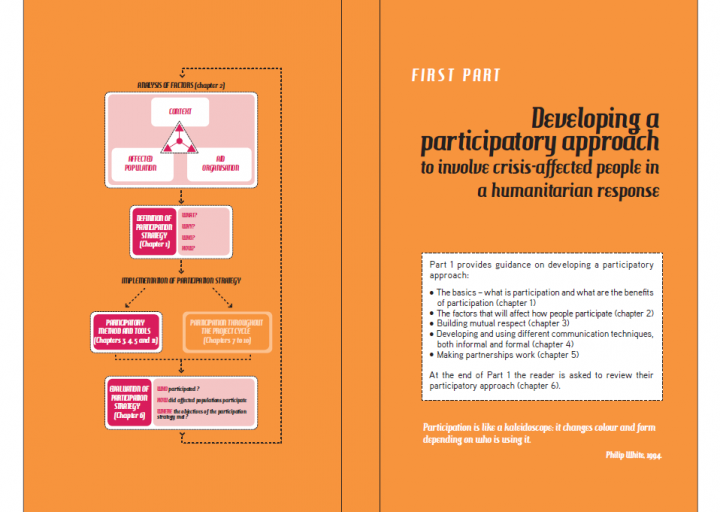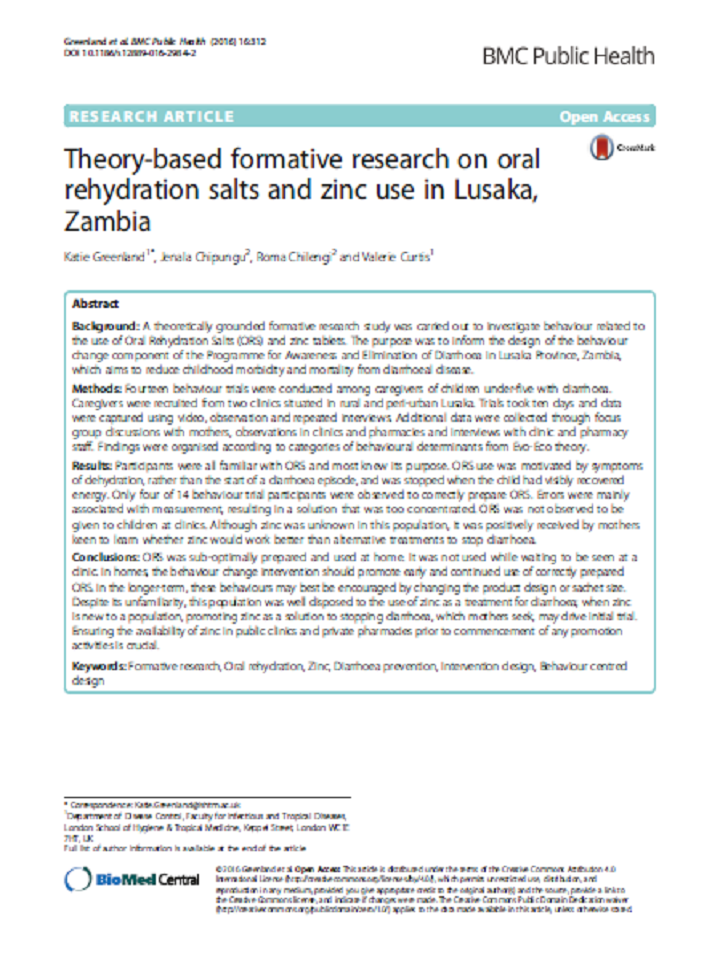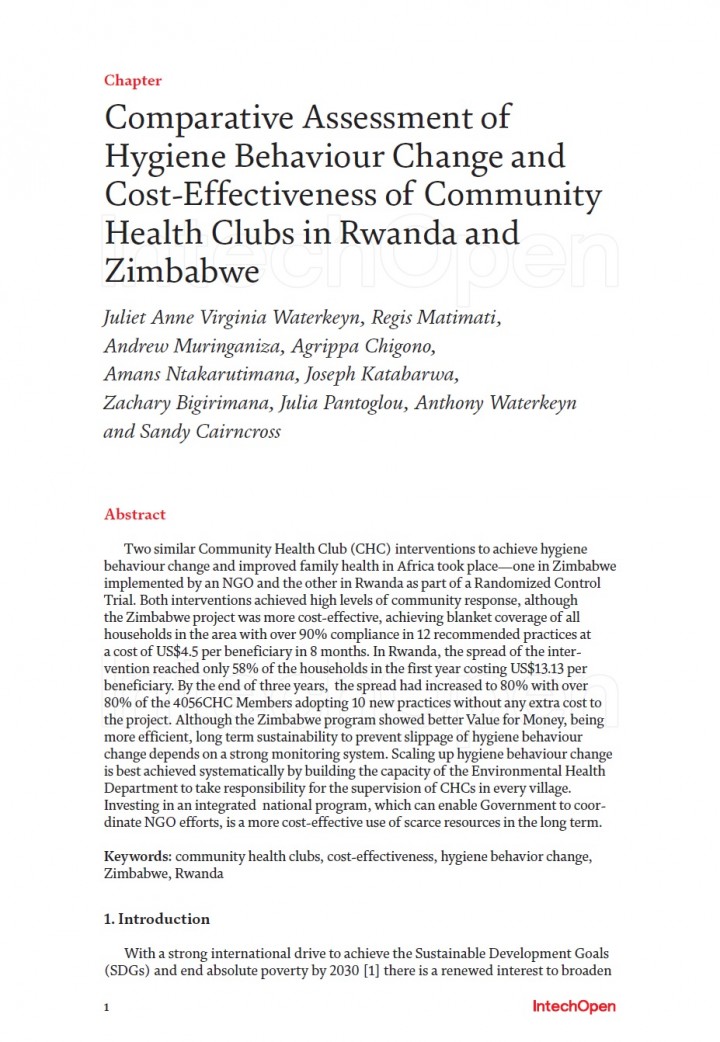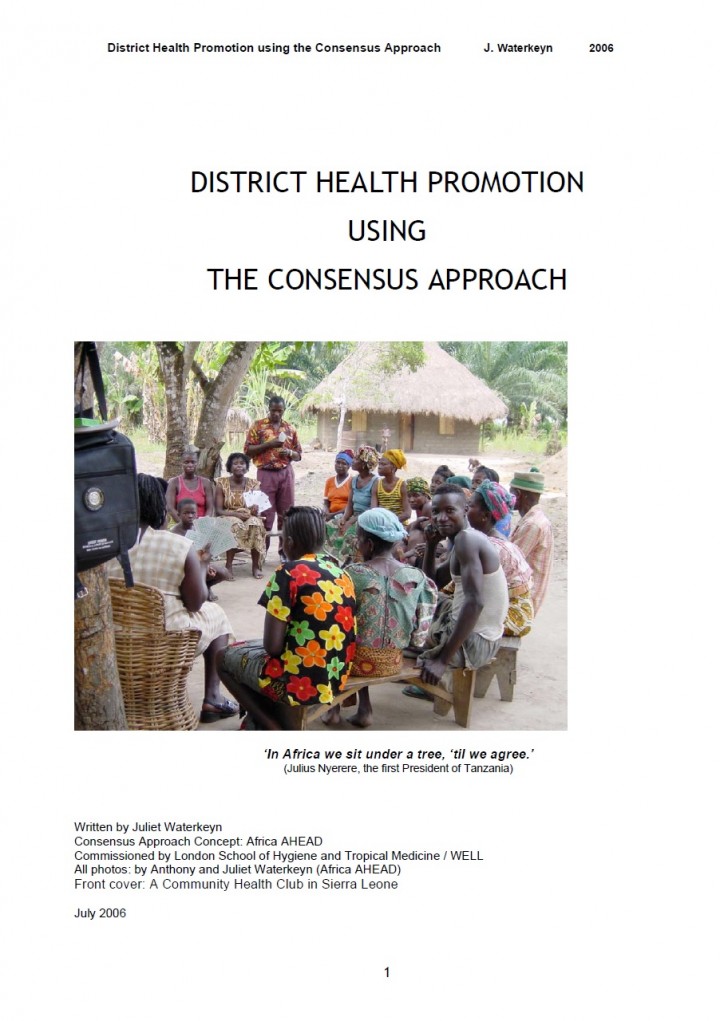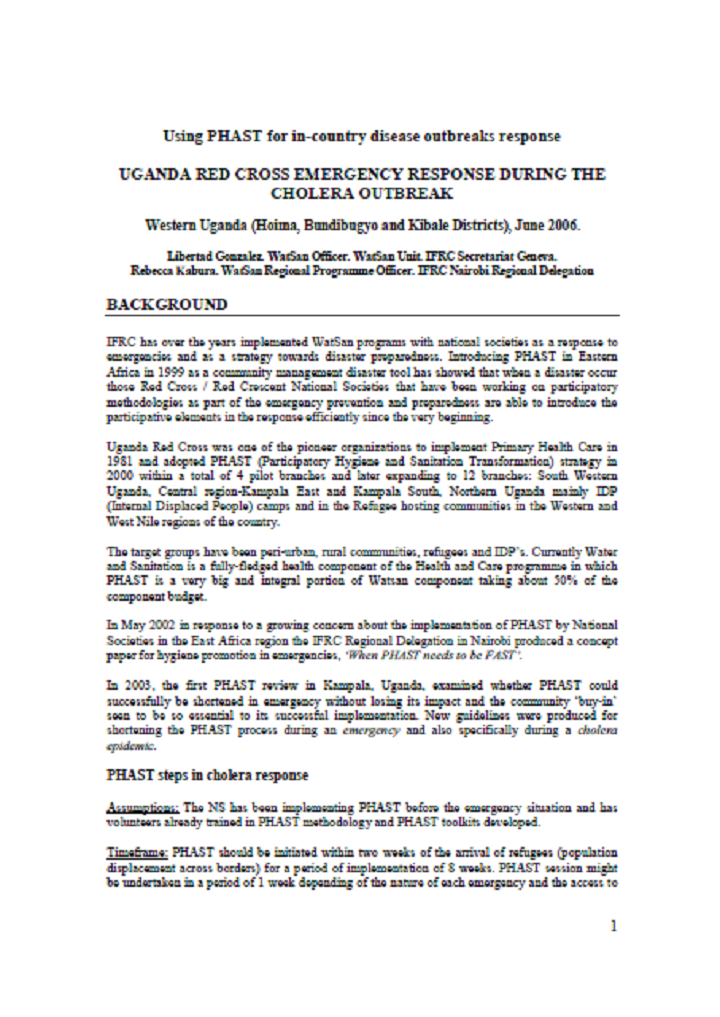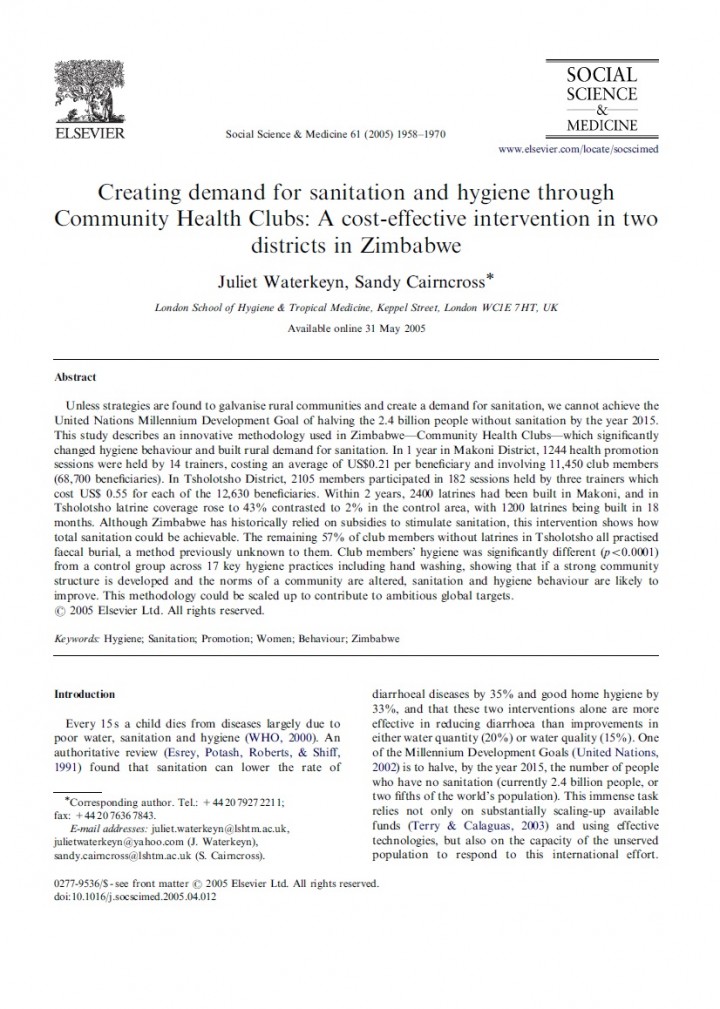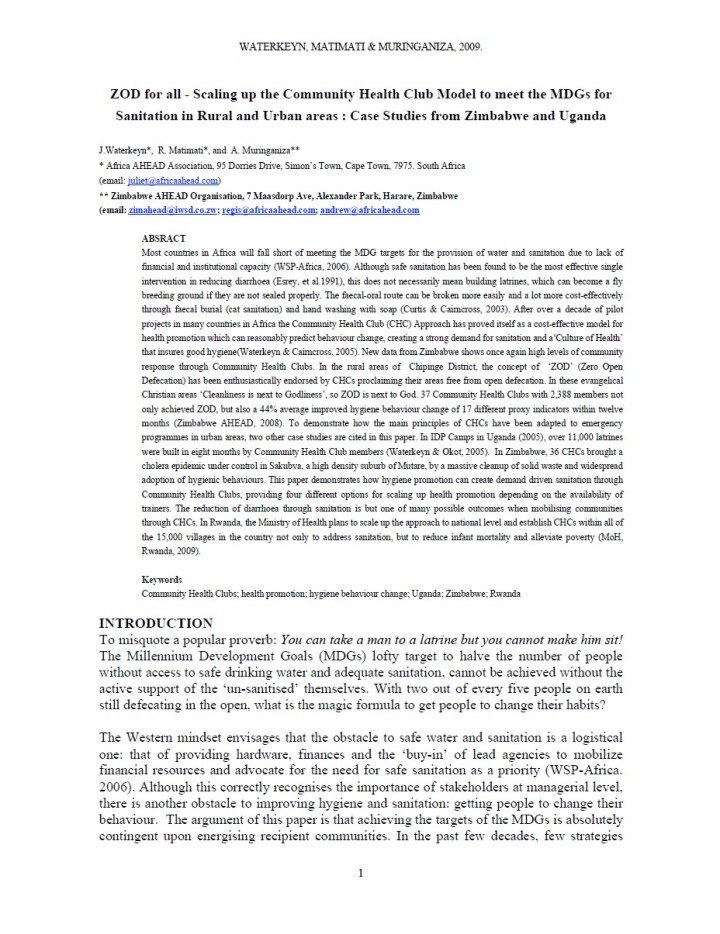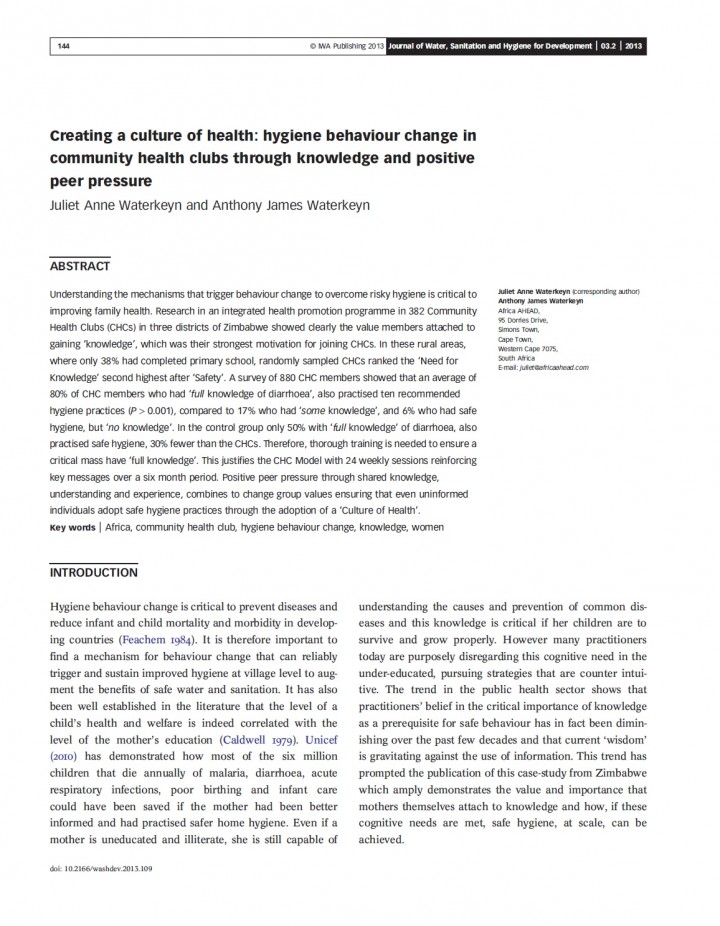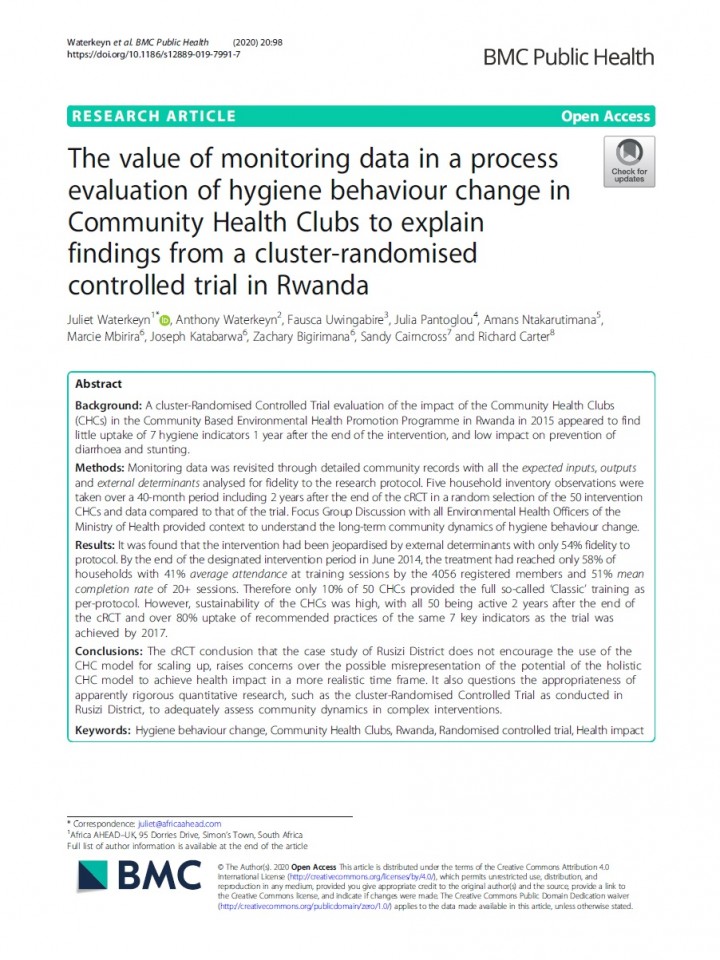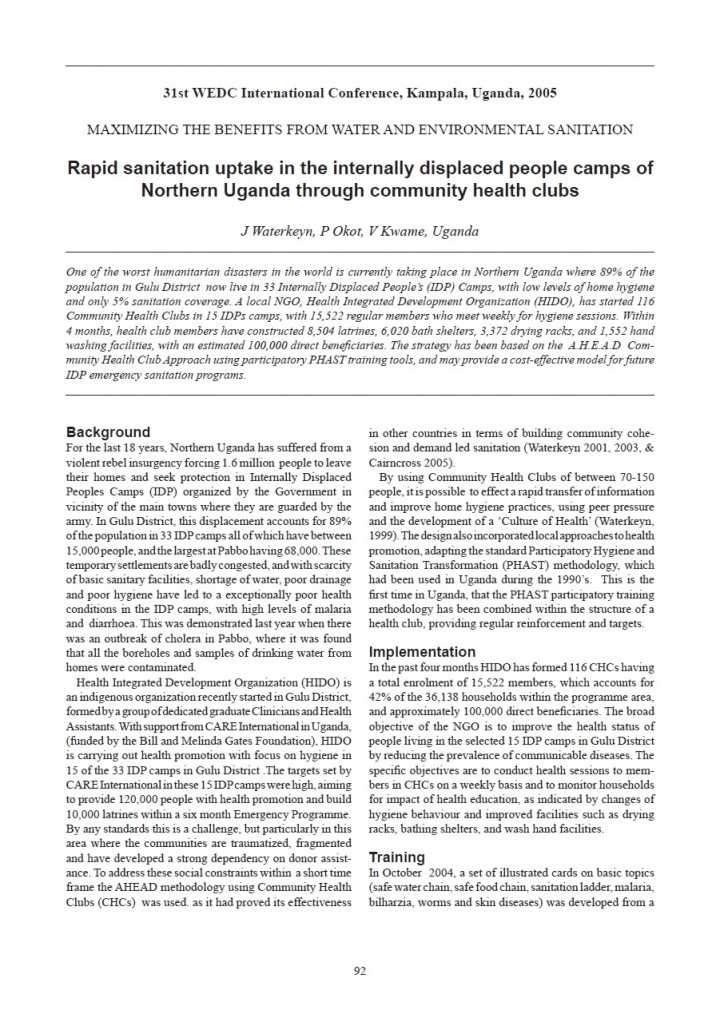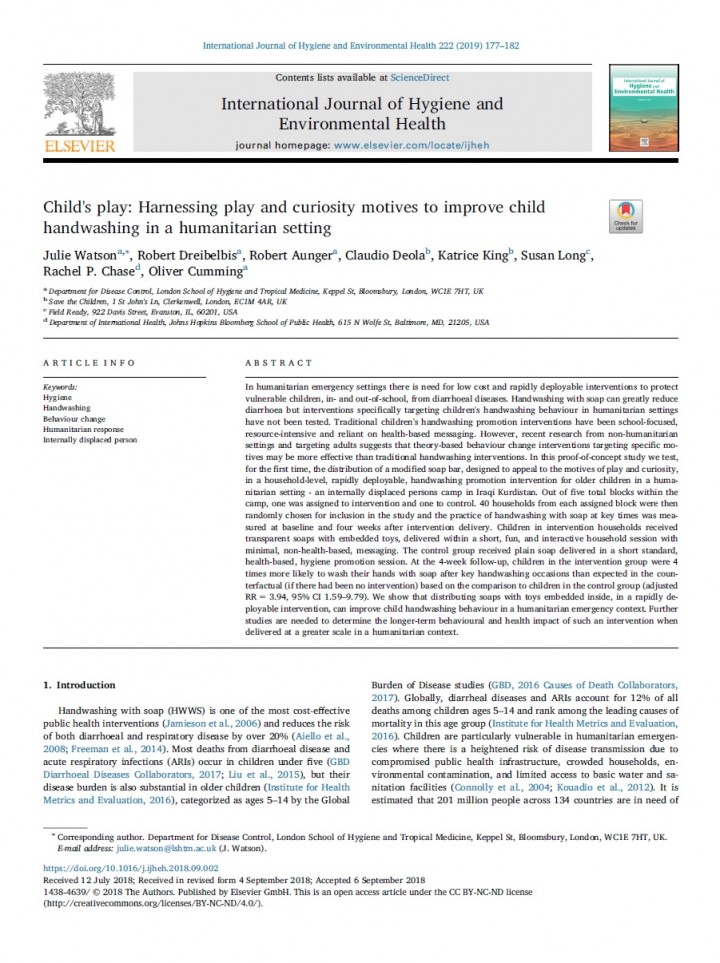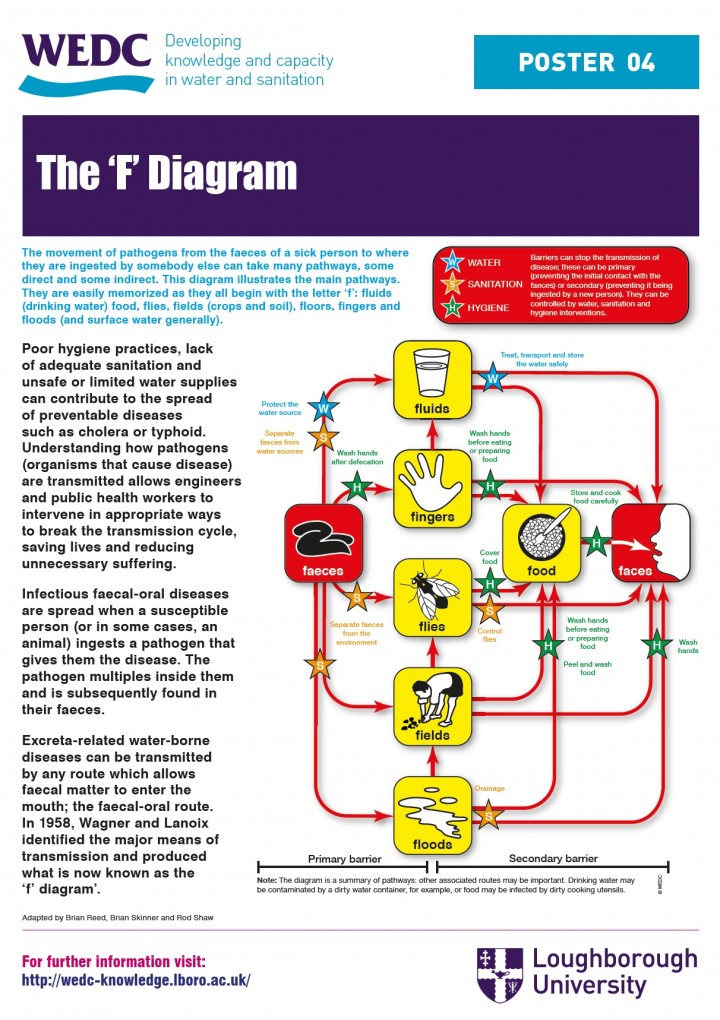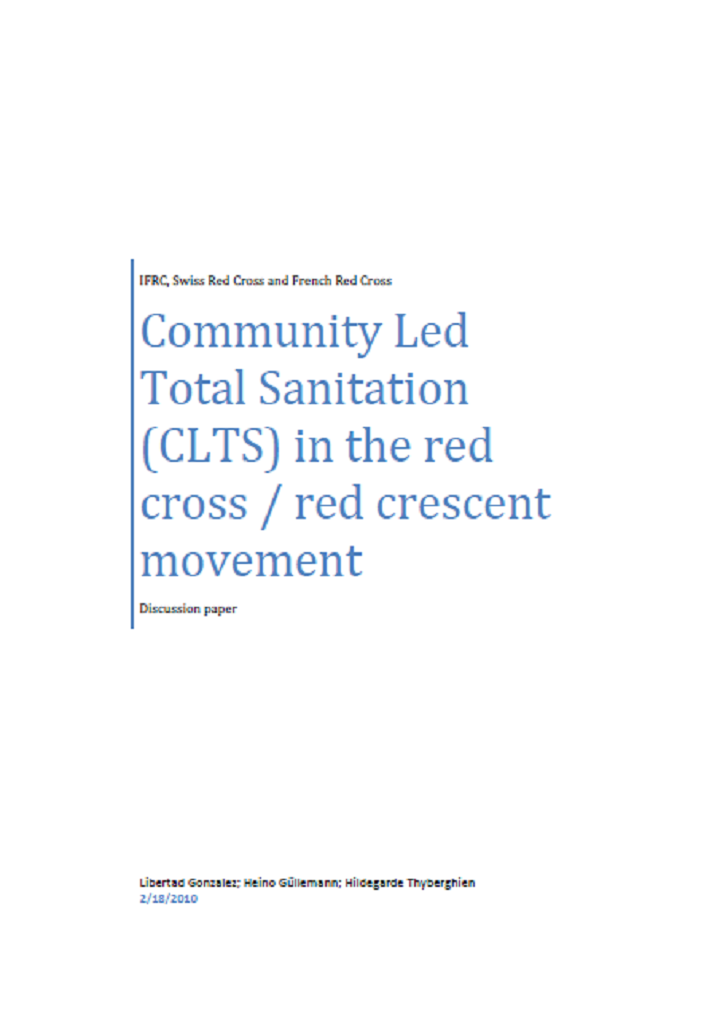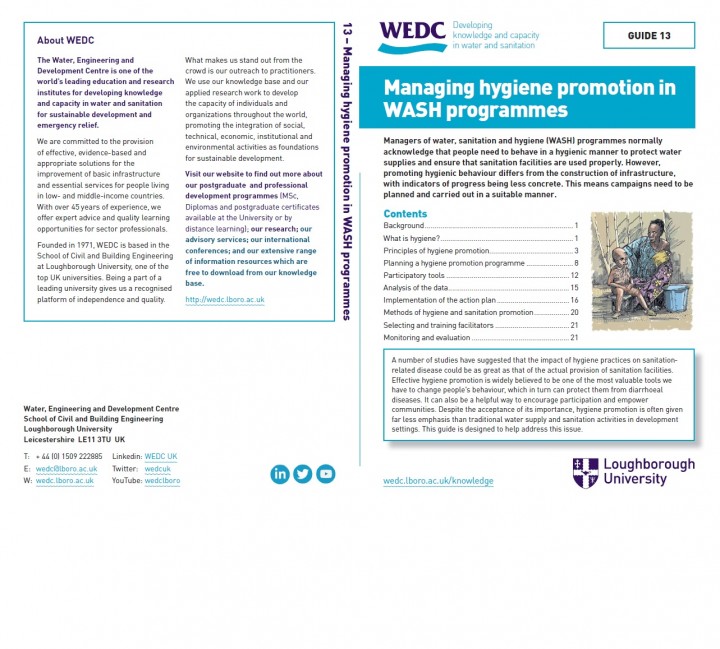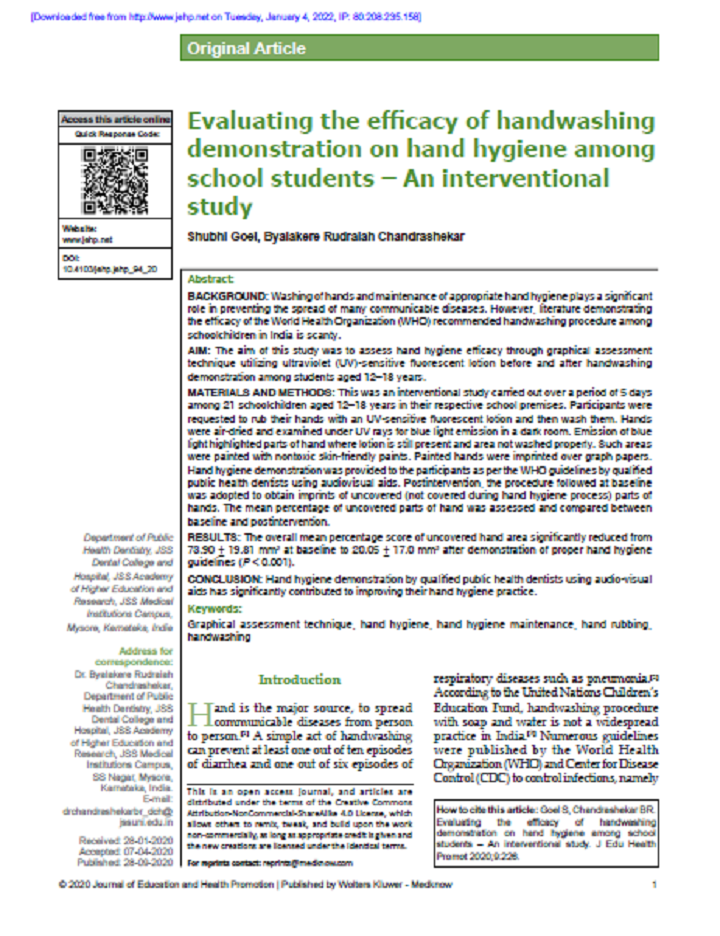Norman, P., Conner, P (2005) Predicting Health Behaviour: Research and Practice with Social Cognition Models. 2nd Edition.
The study of behaviours that influence health and the factors determining which individuals will and will not perform such behaviours has become a key area of research within health psychology. As the second edition of this book testifies, there is a considerable and impressive body of research in this area. The purpose of this book is to provide in a single source an overview of […]
Niederberger, E., Glanville-Wallis, T. (2019) Community Engagement in WASH Emergencies: Understanding Barriers and Enablers Based on Action Research from Bangladesh and the Democratic Republic of Congo (DRC).
Engaging communities in humanitarian programming is key to ensuring their participation in decision-making that affects them as outlined by commitment 4 of the Core Humanitarian Standards. Based on learning from the West-African Ebola response (2014–2016), Oxfam’s WASH (water, sanitation, and hygiene) team is undertaking a paradigm shift toward greater community engagement (hereafter referred to as CE) in WASH, with a strong focus on measuring community […]
Nembrini, P.G. (2005) Water, Sanitation, Hygiene and Habitat in Prisons.
This handbook offers a summary of the practical experience gained. It is not intended to provide answers to all problems relating to material conditions of detention, for such problems have to be approached also from the angle of the organization of prison administrations and of the management of prisons and other places of detention, matters which are outside its purview. The ICRC hopes that this […]
Narayan D. (1993) Participatory Evaluation. Tools for Managing Change in Water and Sanitation. World Bank Technical Paper No. 207.
There is now widespread recognition that participatory development-involvinig users and communities in all stages of the development process-is critical for achieving sustained benefits. By responding to felt needs, and by involving stakeholders intimately in all aspects of a program, participatory development creates "ownership," accountability, and a willingness on the part of users to manage and invest in services. By broadening and opening up the development […]
Groupe URD (2009) Participation Handbook for Humanitarian Field Workers. Chapter 1-7
The Participation Handbook for humanitarian field workers contains detailed practical advice on the participation of affected people in humanitarian action. It has three sections: Developing a participatory approach (main issues, key factors, building mutual respect, communication methods and advice on reviewing your approach); Implementing your participatory approach at every stage of the project cycle (initial assessment, project design, implementation, monitoring and final evaluation); A list […]
Greenland, K., Chipungu, J., Chilengi, R., Curtis, V. (2016) Theory-Based Formative Research on Oral Rehydration Salts and Zinc Use in Lusaka, Zambia
Fourteen behaviour trials were conducted among caregivers of children under-five with diarrhoea. Caregivers were recruited from two clinics situated in rural and peri-urban Lusaka. Trials took ten days and data were captured using video, observation and repeated interviews. Additional data were collected through focus group discussions with mothers, observations in clinics and pharmacies and interviews with clinic and pharmacy staff. Findings were organised according to […]
Waterkeyn, J., Matimati, R., Muringaniza, A., Chigono, A., Ntakarutimana, A., Katabarwa, J., Bigirimana, Z., Pantoglou, J., Waterkeyn A., Cairncross, S. (2019) Comparative Assessment of Hygiene Behaviour Change and Cost-Effectiveness of Community Health Clubs in Rwanda and Zimbabwe
Two similar Community Health Club (CHC) interventions to achieve hygiene behaviour change and improved family health in Africa took place—one in Zimbabwe implemented by an NGO and the other in Rwanda as part of a Randomized Control Trial. Both interventions achieved high levels of community response, although the Zimbabwe project was more cost-effective, achieving blanket coverage of all households in the area with over 90% […]
Waterkeyn, J. (2006) District Health Promotion Using the Consensus Approach
This manual is a guideline for those planners looking for a practical methodology for conducting a health promotion project at District Level. The focus is primarily on applying this approach to rural areas; however the approach is still applicable to an urban setting. The manual takes approximately 1.5 hours to read and is divided into three main sections.
Gonzalez, L., Kabura, R. (2006) Using PHAST for In-Country Disease Outbreaks Response
Waterkeyn, J., Cairncross, S. (2005) Creating Demand for Sanitation and Hygiene Through Community Health Clubs A Cost-Effective Intervention in Two Districts in Zimbabwe
Unless strategies are found to galvanise rural communities and create a demand for sanitation, we cannot achieve the United Nations Millennium Development Goal of halving the 2.4 billion people without sanitation by the year 2015. This study describes an innovative methodology used in Zimbabwe—Community Health Clubs—which significantly changed hygiene behaviour and built rural demand for sanitation. In 1 year in Makoni District, 1244 health promotion […]
Waterkeyn, J., Matimati, R., Muringaniza, A. (2009) ZOD for all - Scaling up the Community Health Club Model to Meet the MDGs for Sanitation in Rural and Urban Areas Case Studies from Zimbabwe and Uganda
Most countries in Africa will fall short of meeting the MDG targets for the provision of water and sanitation due to lack of financial and institutional capacity (WSP-Africa, 2006). Although safe sanitation has been found to be the most effective single intervention in reducing diarrhoea (Esrey, et al.1991), this does not necessarily mean building latrines, which can become a fly breeding ground if they are […]
Waterkeyn, J., Waterkeyn, A. (2013) Creating a Culture of Health: Hygiene Behaviour Change in Community Health Clubs Through Knowledge and Positive Peer Pressure
Understanding the mechanisms that trigger behaviour change to overcome risky hygiene is critical to improving family health. Research in an integrated health promotion programme in 382 Community Health Clubs (CHCs) in three districts of Zimbabwe showed clearly the value members attached to gaining ‘knowledge’, which was their strongest motivation for joining CHCs. In these rural areas, where only 38% had completed primary school, randomly sampled […]
Waterkeyn, J., Waterkeyn, A., Uwingabire, F., Pantoglou, J., Ntakarutimana, A., Mbirira, M., Katabarwa, J., Bigirimana, Z., Cairncross, S., Carter, R. (2020) The Value of Monitoring Data in a Process Evaluation of Hygiene Behaviour Change in Community Health Clubs to Explain Findings from a Cluster-Randomised Controlled Trial in Rwanda
Background: A cluster-Randomised Controlled Trial evaluation of the impact of the Community Health Clubs (CHCs) in the Community Based Environmental Health Promotion Programme in Rwanda in 2015 appeared to find little uptake of 7 hygiene indicators 1 year after the end of the intervention, and low impact on prevention of diarrhoea and stunting. Methods: Monitoring data was revisited through detailed community records with all the expected inputs, outputs […]
Waterkeyn, J., Okot, P., Kwame, V. (2005) Rapid Sanitation Uptake in the Internally Displaced People Camps of Northern Uganda Through Community Health Clubs
One of the worst humanitarian disasters in the world is currently taking place in Northern Uganda where 89% of the population in Gulu District now live in 33 Internally Displaced People’s (IDP) Camps, with low levels of home hygiene and only 5% sanitation coverage. A local NGO, Health Integrated Development Organization (HIDO), has started 116 Community Health Clubs in 15 IDPs camps, with 15,522 regular […]
Watson, J., Dreibelbis, R., Aunger, R., Deola, C., King, K., Long, S., Chase, R. P., Cumming, O. (2018) Child's Play: Harnessing Play and Curiosity Motives to Improve Child Handwashing in a Humanitarian Setting
Abstract In humanitarian emergency settings there is need for low cost and rapidly deployable interventions to protect vulnerable children, in- and out-of-school, from diarrhoeal diseases. Handwashing with soap can greatly reduce diarrhoea but interventions specifically targeting children's handwashing behaviour in humanitarian settings have not been tested. Traditional children's handwashing promotion interventions have been school-focused, resource-intensive and reliant on health-based messaging. However, recent research from non-humanitarian settings […]
Gonzales, L., Güllemann, H., Thyberghien, H. (2010) Community Led Total Sanitation in the Red Cross / Red Crescent Movement. Discussion Paper
PHAST shares the same participatory learning principles as CLTS, which aim at gaining self-esteem, believing in people‟s ability to solve basic problems with their own resources. PHAST and CLTS also have in common the technical scope in their original conception, since both have been designed to focus on sanitation issues in rural communities. However, PHAST in Red Cross / Red Crescent has been successful in […]
Reed, B., Bevan, J. (2014) Managing Hygiene Promotion in WASH Programmes Guide 13
Managers of water, sanitation and hygiene (WASH) programmes normally acknowledge that people need to behave in a hygienic manner to protect water supplies and ensure that sanitation facilities are used properly. However, promoting hygienic behaviour differs from the construction of infrastructure, with indicators of progress being less concrete. This means campaigns need to be planned and carried out in a suitable manner. A number of […]
Goel, S., Chandrashekar, B.R. (2020) Evaluating the Efficacy of Handwashing Demonstration on Hand Hygiene Among School Students. An Interventional Study
This was an interventional study carried out over a period of 5 days among 21 schoolchildren aged 12–18 years in their respective school premises. Participants were requested to rub their hands with an UV-sensitive fluorescent lotion and then wash them. Hands were air-dried and examined under UV rays for blue light emission in a dark room. Emission of blue light highlighted parts of hand where […]
